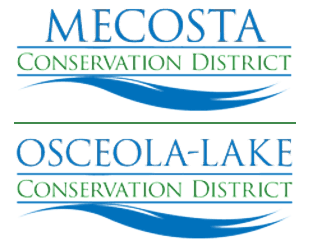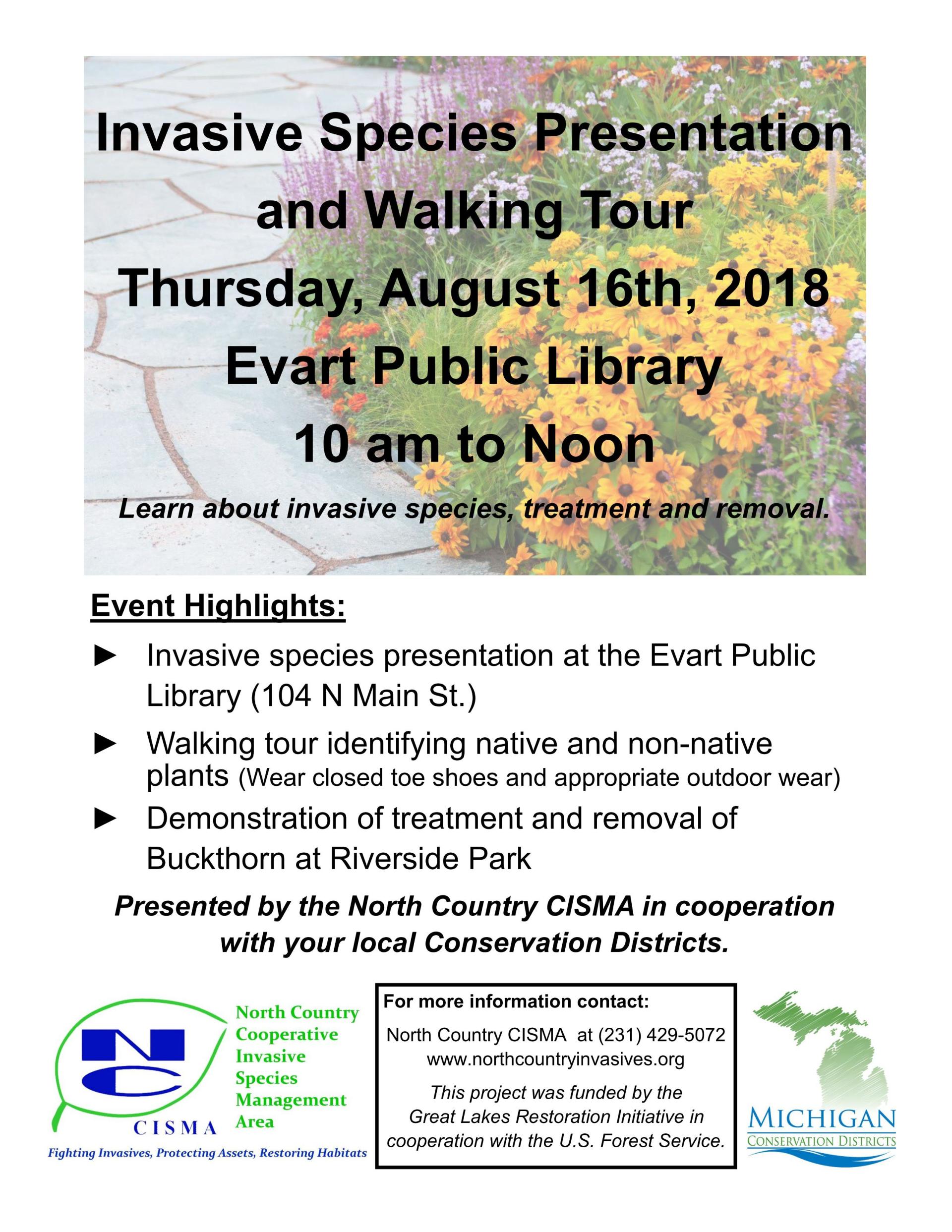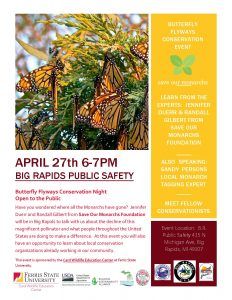Can Hinge-cutting Have Potential Negatives Effects on Your Forest?
- By lemaster
- •
- 26 Jul, 2017
- •
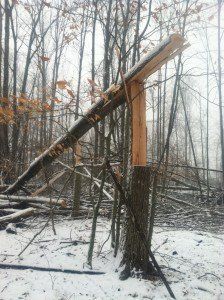
Let me begin by saying, I love my deer and deer hunting as much as anyone out there. Just like many of you, I plan my vacations around the deer hunting seasons. “Deer talk” isn’t just something that happens during “the” season. It is a part of life year round in my camp. My passion for all things outdoors, lead me to choose a career in natural resource management where I have been a forester for nearly 34 years now.
For the past 28+ years, I have been a public service forester administering the Forestry Assistance Program (FAP) for the Osceola-Lake and Mecosta Conservation Districts. The primary target of this state funded service is the private landowners who collectively own nearly 90% of the land base found in my service area. The principal goal of the service is to help the private landowner to make informed decisions about the management of the natural resources found on their property.
My favorite part of the job is meeting onsite with private landowners. It’s during these one-on-one site visits that I’m able to assess the needs of the property relative to the landowner’s goals and objectives. It shouldn’t come as any big surprise that more management decisions on private lands are made with wildlife habitat goals in mind than for any other reason. The wildlife species most revered, is the white-tail deer.
For some time now, while conducting site visits, I have been encountering a tremendous increase in the utilization of hinge-cutting techniques aimed at enhancing deer habitat. Some applications appear to hit the mark quite nicely. Yet others, are starting to raise a bit of concern. While I’m not the biggest advocate of the practice, I’m certainly not opposed to its use. With a well thought out plan, it can be an effective, short-term fix to a necessary deer habitat component that is lacking in many private forests.
However, setting my wildlife passions aside, the forester in me, is
starting to ask, has the hinge-cutting “craze” gotten out of hand? Are
there potential long-lasting consequences to the future health,
productivity and sustainability of certain private forestlands that are
being over-looked? Are there other alternatives to managing the forest
resource that better serve the wildlife resource? Should private forest
owners be asking these same questions before they set their actions in
motion? At this point in time, I would answer yes to each of these
questions.
As many of you will already know, the term “hinge cut” refers to cutting partially through a small tree by only applying a back-cut so that it can be tipped over, yet the tree remains attached to the stump and alive for a period of time. The technique is commonly applied to accomplish three objectives: 1) create instant hiding places where deer will bed; 2) provide a source of browse in two forms…first from the hinged tree itself and secondly from the new shoots and forage that spring up once sunlight is allowed in; 3) and strategically felling trees to funnel deer past a desired ambush location.
I have utilized the practice on my own property albeit on a small scale basis. Applying hinge-cutting techniques to cull trees (undesirable species and those of poor form) will increase deer cover, browse and improve the overall health and quality of the forest. Smaller trees generally are more conducive to hinging and far less dangerous to cut and tip over. Some tree species are better suited to hinging than others as well.
The strongest argument against hinge cutting is human safety (hinge-cutting seriously violates the basic rules for chainsaw safety while safely felling a tree). I get that and I hope you do as well. I grew up in a family of loggers and know all too well the harm a chainsaw can cause in the blink of an eye.
A chainsaw is arguably the most dangerous hand-tool known to mankind. Yet it can be purchased without any proof of qualifications or certification. According to Chuck Oslund, a Professional Chainsaw Safety Systems instructor, a chainsaw operating with a chain speed of 50 mph will send 500 uncovered teeth per second a few inches distance from your leg (or in the case of hinge-cutting, mere inches from your face). Think about that! If you learn to operate a chainsaw properly and maintain it in good working condition, it can make easier work of getting many forestry, agriculture and homeowner jobs done with greater efficiency and exactness. If you use it incorrectly, haphazardly or casually, it can become a powerful, forceful tool capable of doing great bodily harm.
In addition to safety concerns, some natural resource professionals (myself included) are beginning to raise questions about the long term impacts on forested sites where the over-aggressive application of hinge-cutting has taken place. Among those concerns, are sites where rapid invasion of undesirable shrubs such as autumn olive, honeysuckle, Japanese barberry, buckthorn, and others are out-competing native flora. Over a period of time, invasives can completely displace native vegetation and seriously run the risk of compromising the long-term health and ecological functionality of the forest.
On sites where red oak is present, additional concerns are raised for the potential introduction of oak wilt. Oak wilt disease is spread between trees through roots, by beetles, and by the movement of firewood. The critical DO NOT prune period to lessen chances of introducing oak wilt is April 15 through July 15. While most landowners won’t be including red oaks in their hinge-cutting activities, some already are. Even an accidental injury to a red oak during the felling process while hinge-cutting will create a potential open invitation to oak wilt.
Aspen is another tree species that every deer habitat enhancement enthusiast should take note of. If it appears on your property, you will be making the best long-term investment in enhancing your deer habitat by regenerating and expanding its presence where possible on your property. If aspen is a minor component species found amongst other tree species, you risk losing it if it is cut incorrectly; i.e. you fail to provide the full sunlight condition needed for sprout survival. Less aspen, less deer. You decide.
Furthermore, exposing some high-value hardwood species to full sunlight will likely.
result in excessive sprouting on the clear limbless stems. This will vastly diminish their future value. Lastly, most landowners won’t be hinge-cutting high value tree, but again, some already are. The loss in current or potential future income can be quite significant if the wrong trees are sacrificed.
Participation in some state and federal programs requires the professional management of your forest resource. A state tax reduction program like the Qualified Forest Program (QFP) requires participants to professionally manage their forest resource according to a certified management plan. Hinge-cutting can be a practice to improve the overall health of the forest while meeting wildlife objectives for the property.
The problem arises when forest owners over-use hinge-cutting activities to the extent that careful control of the stand’s density is compromised to the extent that it affects current and future productivity of the stand. Although hinge-cutting can effectively play a role in eliminating identified cull trees in many timber types, removing too many of the wrong trees can result in an understocked forest. This could potentially lead to dismissal from the QFP tax reduction program.
Federal Farm Bill programs can also be applied for and utilized to enhance forest and wildlife habitat objectives. These financial incentive payments are provided with prior approval and implemented according to a participant’s certified management plan. Mis-use of forest stand improvement practices could potentially jeopardize incentive payments.
One of the best investments you can make for your property is to schedule an appointment with a natural resource professional to learn more about your forest. Not all sites are created equal, in terms of their potential. Seeking professional assistance will keep you working within the limits of the property and help you to avoid a hit and miss approach to your decision making.
Many forest management practices provide better long-term wildlife habitat enhancement benefits than hinge-cutting. In addition, many forest management practices have the potential to generate a source of revenue. And, where safety is an issue, they will be applied by experienced professional equipment operators.
At the current time, 49 counties are covered by the Forestry Assistance Program. When at full capacity, there are 20 public service foresters like myself available at no-cost to help private forest owners to make informed resource management decisions for their property. Make a visit to the Michigan Department of Agriculture and Rural Development website. Locate Privatelands Initiative and an interactive map to the FAP. If your property is located in a county not currently covered by the FAP, go to the Michigan Forest Association website at: www.michiganforests.com and click the MFA Foresters list; or go to www.michigan.gov/qfp or www.michigan.gov/foreststewardship to locate a professional forester near you.
Hinge-cutting can play a role in enhancing your deer habitat. But before you fire up the chainsaw, consider taking a chainsaw safety course; be sure you have the proper personal protective equipment recommended while operating a chainsaw and be sure to wear it; check your insurance policy; and lastly, visit with a professional forester to be sure you’re managing your forest resource not just cutting trees.
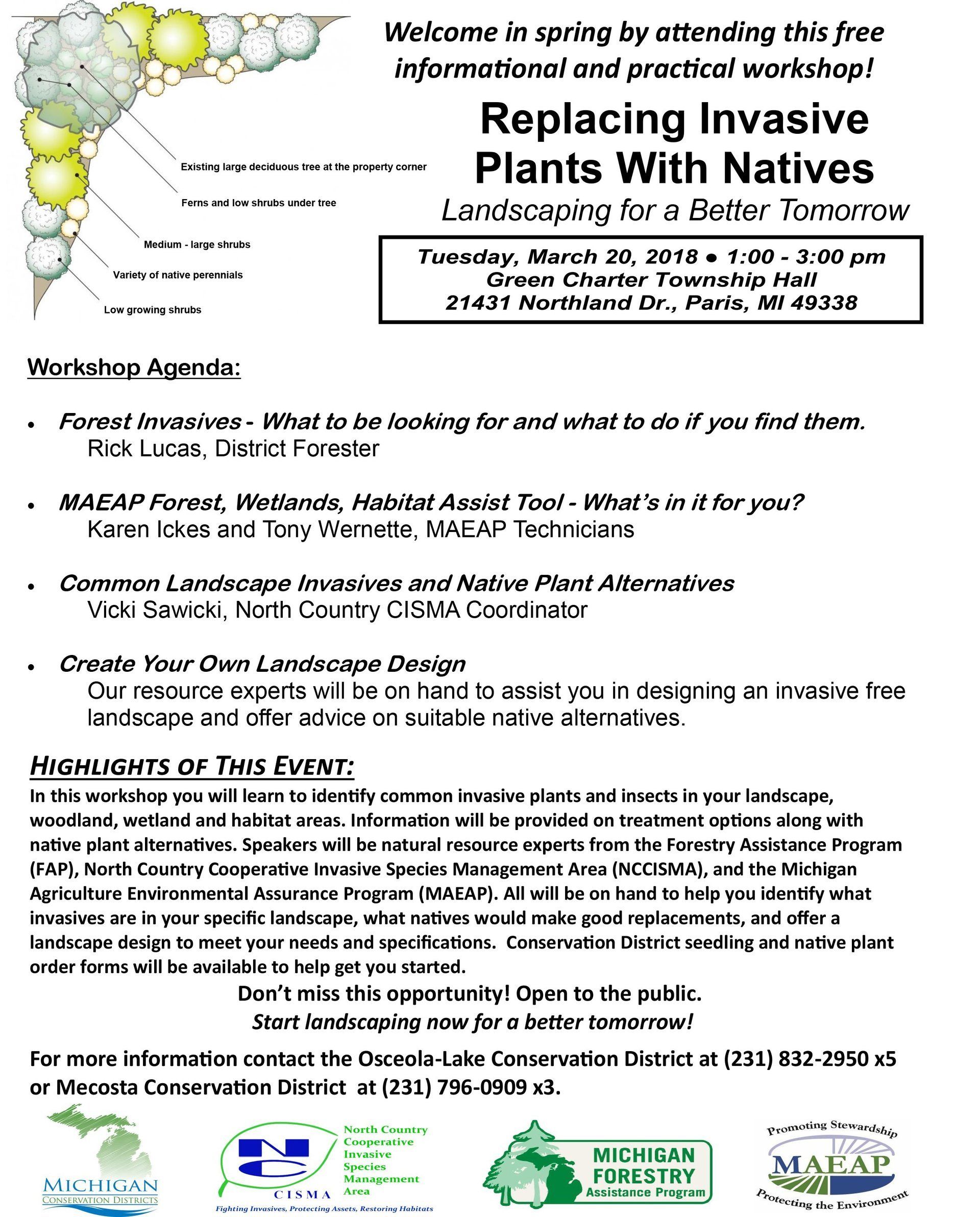
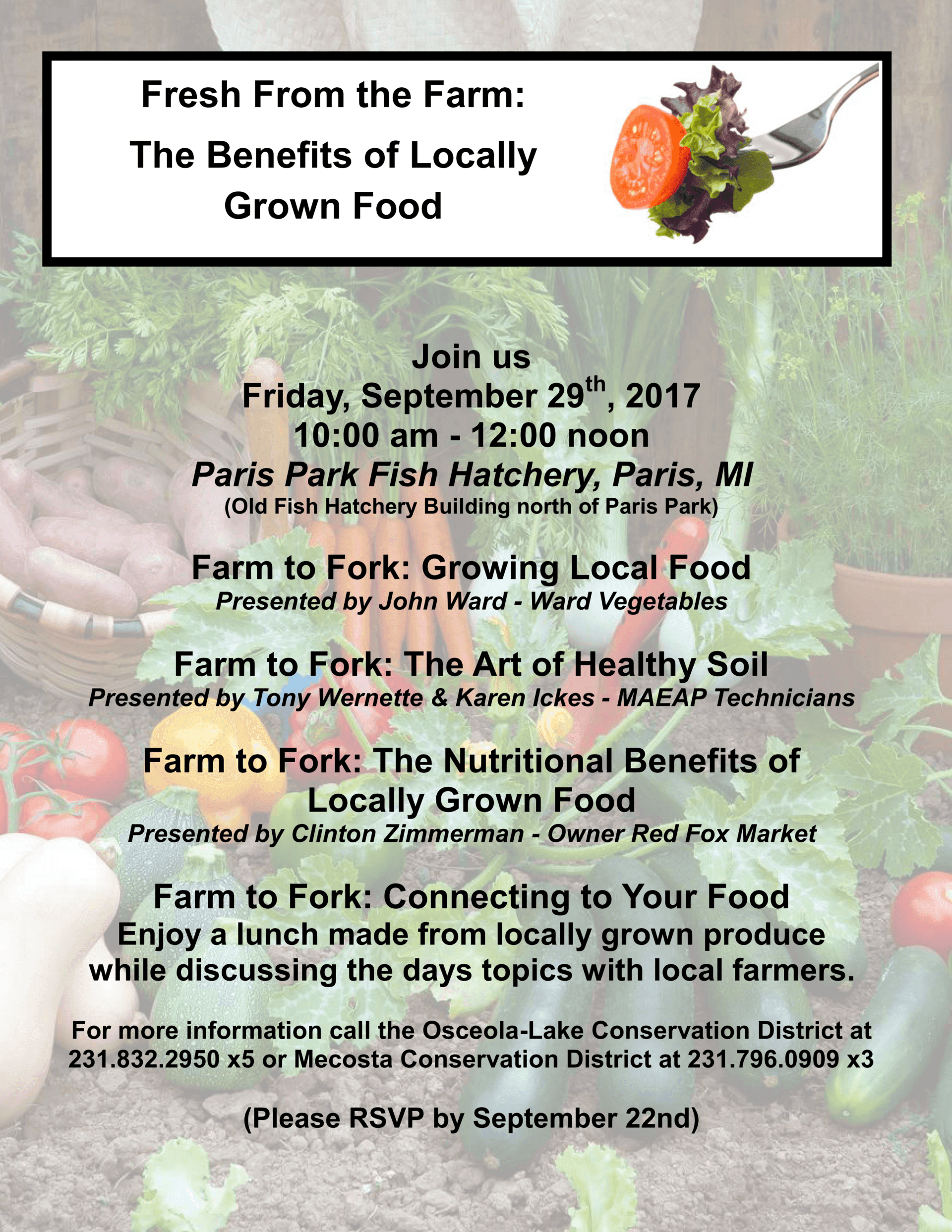
Friday, September 29th, 2017
10:00 am- 12:00 noon
Paris Park Fish Hatchery, Paris, MI
(Old Fish Hatchery Building North of Paris Park)
Farm to Fork: Growing Local Food
Presented by John Ward - Ward Vegetables
Farm to Fork: The Art of Healthy Soil
Presented by Tony Wernette & Karen Ickes - MAEAP Technicians
Farm to Fork: The Nutritional Benefits of Locally Grown Food
Presented by Clinton Zimmerman - Owner Red Fox Market
Farm to Fork: Connecting to Your Food
Enjoy a lunch made from locally grown produce
while discussing the days topics with local farmers
For more information call
Osceola-Lake Conservation District at 231.832.2950 x5
Mecosta Conservation District at 231.796.0909 x3
(Please RSVP by September 22nd)
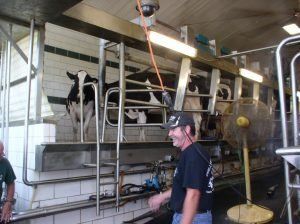
Farmers and forest owners are encouraged to submit applications for U.S. Department of Agriculture conservation assistance by Dec. 16, 2016. Conservation financial assistance is available for implementing a wide variety of practices to reduce soil erosion, improve wildlife habitat, protect water quality and manage private forest land.
“USDA conservation programs can help farmers reduce erosion and protect water quality while maintaining or improving production,” said USDA State Conservationist Garry Lee.
Conservation financial assistance is available through the Environmental Quality Incentives Program administered by the USDA Natural Resources Conservation Service. Complete applications received by Dec. 16, will be ranked and considered for fiscal year 2017 funding. Financial assistance is available for implementing designated conservation practices such as windbreaks, nutrient management plans, cover crops, forest management plans, crop residue and tillage management, animal waste storage facilities and many others. Applications are ranked and selected for funding on a competitive basis.
A portion of USDA conservation funding is targeted to state-level conservation priorities. These include funds for farmers seeking Michigan Agricultural Environmental Assurance Program verification, high tunnels in Wayne and Genesee counties, honey bee habitat, organic producers and producers transitioning to organic production, and energy conservation.
Conservation activities receiving financial assistance must be part of an agricultural or forest operation’s conservation plan. Producers should work with their local NRCS or conservation district staff to develop a conservation plan before applying for the program. Successful applicants enter into a contract with NRCS to implement conservation activities and are reimbursed for a portion of the cost.
NRCS provides higher levels of financial assistance for beginning farmers and historically underserved producers. Applications are accepted on a continuous basis, producers and forest owners are encouraged to submit applications at any time. More information about conservation financial assistance through the Environmental Quality Incentives Program is available at local NRCS offices and online at www.mi.nrcs.usda.gov.
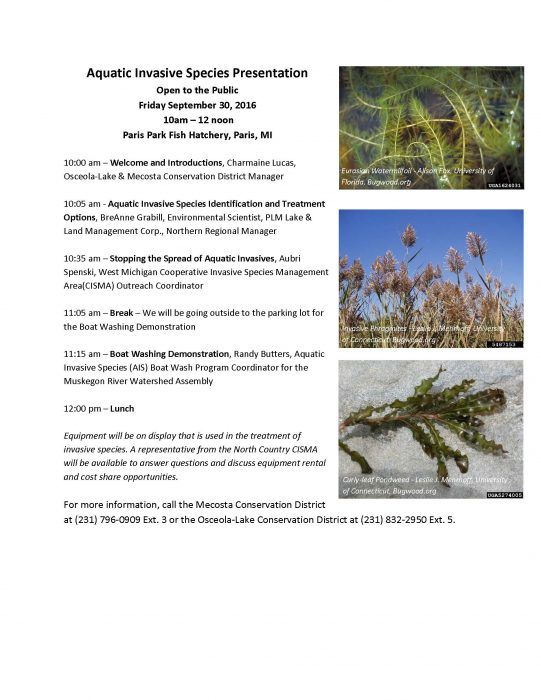
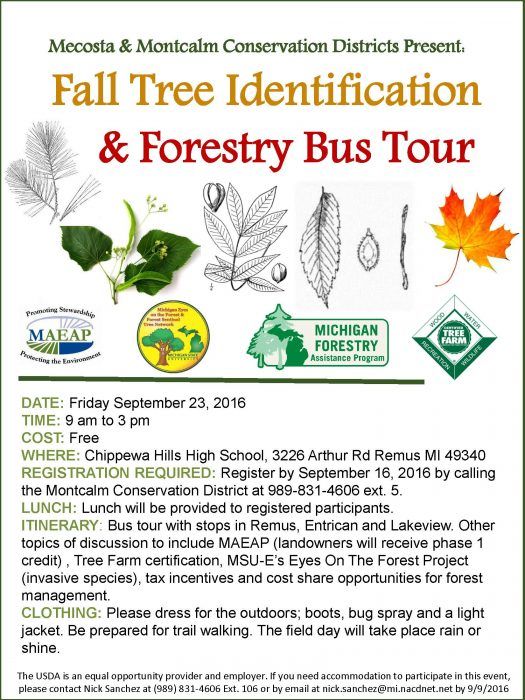
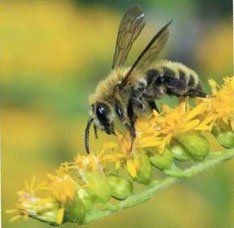
Michigan State University Clarksville Research Center9302 Portland Road, Clarksville, MI 48815
Beneficial insects provide valuable pest control and pollination services to farms and gardens, but they need a little help from you as well. Many insect natural enemies and pollinators depend on a diversity of flowering plants for critical nectar and pollen foods. MSU entomologists have been testing Michigan native and other plants for these purposes and want to share their results with you at the Supporting Beneficial Insects with Flowering Plants workshop. The workshop will include presentations, hands-on insect and plant identification, and field tours to view over 55 species of insect-supportive (insectary) plants. Speakers will include representatives from MSU Department of Entomology, MSU Department of Plant Biology, USDA-NRCS and Michigan Native Plant Producers Association.
Participants will learn to identify key pollinators (managed and wild bees) and natural enemies (predators and parasitoids) of insect pests, as well as learn about programs that can help them establish beneficial insect habitats on farms and other property. Field tours will demonstrate which plants are best for attracting beneficial insects and include information on establishing and caring for insectary habitats. Participants will receive four MSU Extension publications including two popular, pocket-sized field guides, “Bees of the Great Lakes region and wildflowers to support them” and “Identifying natural enemies in crops and landscapes.”
Registration is open until July 23 with a fee of $20 to cover lunch and materials. Register at the MSU Extension Events Management website: http://bit.ly/beneficials2016 . Speakers and schedule are posted there.
“What’s Growing In My Garden?” – June 2nd
Have you always wanted to know what that plant is that appears in your garden, flower bed, or landscape? Is it a flower or weed? Invasive or native? Medicinal, edible or toxic? Here’s your opportunity to find out. On Friday, June 2nd, from 4 pm to 6 pm, local experts experienced in plant identification, will be at the Reed City Depot (200 N. Chestnut) to identify those annoying or mystery plants that you’ve been wondering about. So bring a sample or photo to let our local experts assist in identification. Our plant experts include: a botanist with the US Forest Service, coordinator of the North Country Cooperative Invasive Species Management Area (CISMA), retired FSU botany professor, and Master Gardener/Master Naturalist. Don’t miss this opportunity!
The Osceola-Lake and Mecosta Conservation Districts will also be holding their annual native plant sale at the same time. Extra plants will be available for sale if you did not place an order.
For more information contact the Osceola-Lake CD at (231) 832-2950 Ext. 5 or Mecosta CD at (231) 796-0909 Ext. 3.
